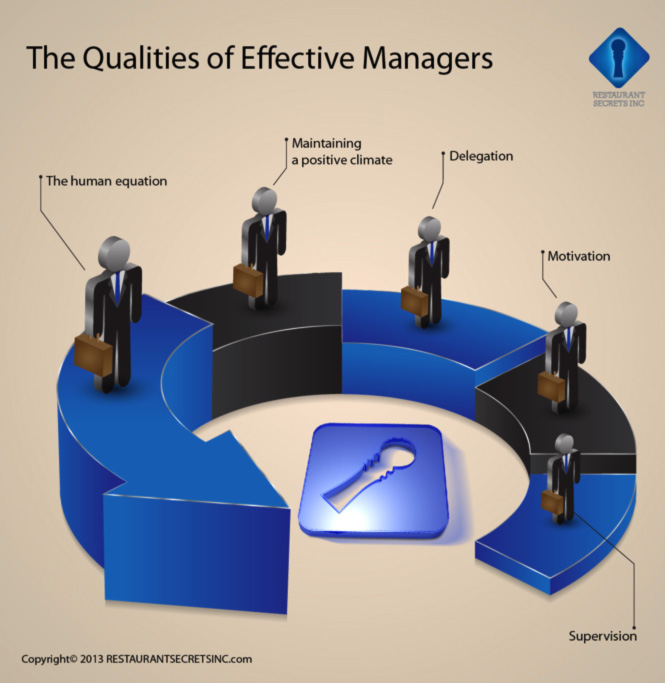

Motivation
Another aspect of supervision that the manager must consider is motivation. To motivate employees is to create high performance expectations that they will fulfill. In other words, motivation involves increasing worker performance, productivity and teamwork of the employees in the store. There are many ways to motivate employees. Money is a motivator, but it is usually a short-term motivation. You offer an employee the incentive of 10 cents per hour increase in salary if he/she performs at a given rate. Those 10 cents per hour may be enough to generate the performance that you want, but it is only for a short period of time. Before long, the employee will be looking for another raise or bonus before continuing to perform at that level or at a greater level. Historically, it has been assumed that money was the best motivator. It is not the case today and may never have been.

What motivates people to work and be productive? Putting it simply, to be motivated is to do what you like and want to do. People have different needs, desires, goals and aspirations. To motivate employees, the manager must fulfill these needs as best as possible. It is important to remember that while managers can only guess what will motivate their employees, their employees know. If managers get into the habit of asking their employees what they want from their job, the climate of the work place can be improved and productivity and morale will be on the rise. Also, it has been found that if you have a high level of expectation (though not unreasonably high) of your employees, their actual performance will, in many cases, actually rise to meet your expectation regardless of their actual abilities. The implications of this are quite clear; work the employees, manage them, set high standards of achievement for everyone, actively supervise their activities and you will have a tremendous opportunity for success.
Supervision involves many things:
- Working with the employee to get things done.
- Setting an example for attitude, performance and teamwork.
- Checking the effectiveness of the employee-training program.Developing the full potential of the employees through motivation.
What managers expect of employees and the way managers’ treat them largely determines their performance and progress. A unique characteristic of a superior manager is his/her ability to create high performance expectations that employees will fulfill.
A manager’s attitude and expectations can motivate employees to higher levels of achievement. Do not dwell on the negative, stress the positive. Effective “motivators” have certain characteristics that work to their advantage. These characteristics include:
- Belief in themselves and confidence in what they are doing.
- Believe in their ability to develop the talents of their employees; to select, train and motivate them. Their faith in their ability to pick the right person makes them reluctant to give up on their choice or to admit that the person might be the wrong choice. Thus, they try that much harder to make sure the worker succeeds.
- Ability to communicate to workers that their expectations are realistic and achievable. If employees are encouraged to strive for unattainable goals, they eventually give up trying and settle for results that are lower than they are capable of achieving.
- Belief that workers can learn to make decisions and to take the initiative. Encourage and allow their employees to do so, assuming the best rather than the worst for the staff.
- Pride in and preference for the success and increased skill of their employees.
Employees want and need close supervision. They want to know what the job is, how to do it and whether or not it is being done properly. They want a feeling of belonging, and of being an important part of the organization. If a manager is skillful, the employees' self-confidence will grow, their capabilities will develop and their accomplishments will be many.
Praise in public and constructively criticize in private to preserve dignity and pride. This creates confidence and respect; you can then coach and encourage performance. Remember, behind every problem or un-enjoyable situation is an opportunity for improvement and success, an opportunity for bigger and better things.
Help people believe in the importance of what they are doing and they can become self- motivated. “The personnel management cycle involves interviewing, training and supervising, all of which are influenced by motivation.”